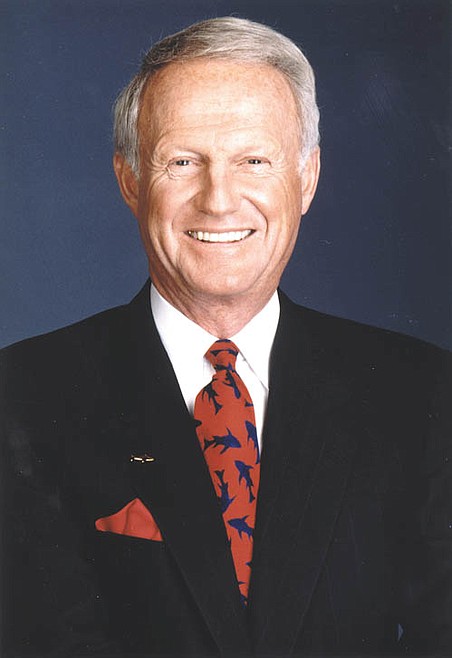The joy of working
HARVEY MACKAY | Coeur d'Alene Press | UPDATED 2 years, 1 month AGO
There was once a high school teacher who supplemented his income by writing short stories. He liked to teach, but he loved to write. He later wrote the first few pages of a story about a teenager with psychic powers and threw it in the trash. But his wife retrieved it and encouraged him to finish it. The teacher was Stephen King, and the story became his first published novel, "Carrie."
King has written more than 50 novels, and here is how he describes his career: "I've made a great deal of dough from my fiction, but I never set a single word down on paper with the thought of being paid for it … I have written because it fulfilled me … I did it for the pure joy of the thing. And if you can do it for joy, you can do it forever."
The most joyful people are those who discover that what they should be doing and what they are doing are the same thing. People naturally seek joy because joy connects people more powerfully than almost any other human experience.
Look at the power of joy in sports. Watch what happens when teams win championships, like the Texas Rangers in the recently completed World Series. Both the players and fans are caught up in the moment and experience the ecstasy of success.
And do you know what? The joy in championship athletics can be duplicated in business.
The consulting firm Kearney surveyed more than 500 employees of varying ages in different industries in the Americas, Europe, the Middle East and Africa. It found that joy comes from three categories: clarity, contribution and commendation.
Employees who know their roles plus the roles of others and how everything fits into the team concept reported feeling the most joy at work. Conversely, there was less joy in becoming the jack-of-all-trades.
Along the same lines, employees felt joy in knowing their talents and contribution were crucial to the team and the business' success. Joy stemmed from believing their work was meaningful.
Finally, employees felt the most joy when they were commended for their hard work, not only by managers but by fellow employees. It was equally important to recognize the team's work as it was to acknowledge individual employees' efforts.
The Kearney study also found employees experienced joy at work when they believed their company made a positive societal contribution.
Psychologist and leadership coach Rebecca Newton describes four steps to rebuild our sense of professional joy: Build your strengths into your day, focus on your professional growth, share your emotions with a trusted colleague and rebuild relationships through the work itself. I'd like to add my comments to her findings.
• Build your strengths into your day. Imagine how hard it would be to have to face each day knowing that your talents and abilities are not valued or useful in your current position. Yes, there may be days when you wonder if what you are doing matters. But for the most part, knowing that you are making a contribution improves your outlook.
• Focus on your professional growth. Never pass up an opportunity to learn something new. Be fearless when accepting challenges. Seek advice from seasoned co-workers when you need direction. Be a mentor and share your skills.
• Share your emotions with a trusted colleague. Airing your concerns with dependable friends often results in discovering that others have similar thoughts. It's an important step to problem-solving and team building.
• Rebuild relationships through the work itself. When you love what you are doing, find a way to share your joy with your co-workers. Accomplishing projects together builds trust and friendship. But it also fosters pride in achievement, a clear component of joy.
Joy is a powerful emotion. It must come from within. Reaching milestones, achieving success, finding common ground, making friends — all these can lead to joy. But you must also be able to experience joy to get there.
Comparing yourself with others, always wanting or expecting more, never being satisfied with what you have or have accomplished are joy-killers. Allow yourself to be happy. Take pride in what you achieve, even if it's something small. Find happiness in little things, because your days are filled with opportunities to be joyful.
I refer to this old saying to guide my actions: "Some people bring joy wherever they go, and some people bring joy whenever they go." Try to be the former and not the latter.
Mackay's Moral: Joy can be thought, taught and caught — but not bought.
• • •
Harvey Mackay is the author of the New York Times bestseller "Swim With the Sharks Without Being Eaten Alive." He can be reached through his website, www.harveymackay.com, by emailing [email protected] or by writing him at MackayMitchell Envelope Co., 2100 Elm St. SE, Minneapolis, MN 55414.

